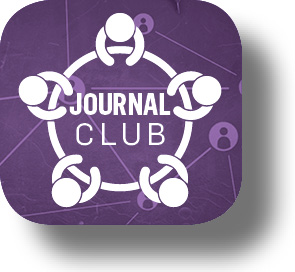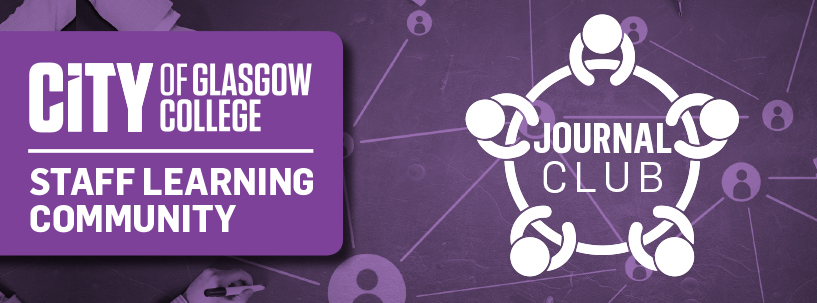Blog Authors: David Cullen, Walter Patterson, John McVeigh, Lynn Brown, Tracey Howe, Lisa Shields
Image: Dave Morris from Oxford, UK / CC BY (https://creativecommons.org/licenses/by/2.0)
City of Glasgow College has many interests including: ESOL teacher development, reflective practice in educators and the use of technology in assessment evidence. This week’s paper ESOL pre-service teachers’ experiences and learning in completing a reflection paper and digital storytelling was chosen for review as it ostensibly covers a number of these topics.
Here’s what they did
The subjects of the qualitative study were 20 students on a post-graduate level Teaching English for Speakers of Other Languages (TESOL) course. In a module on Language and Culture, the students had to complete two assessment tasks: a written assignment and a digital storytelling artefact. The researcher then had the students carry out two further tasks for the purposes of the study: writing a reflection paper and delivering a reflective presentation. The researcher analysed all four sources of data and sought to examine the subjects’ performative approaches to the tasks, and their reactions to the tasks. The researcher also considered the gender and nationality of the subjects in relation to their performance and response.
Here’s what they found
- that there were general commonalities in the subject’s performance of and reaction to the two sets of tasks (assessment and reflection).
- there was a significant difference in subjects’ responses between the familiar written report and the unfamiliar digital storytelling task.
The author/s concluded
The inclusion of a dual reflective task was of benefit to pre-service TESOL candidates as it enhanced their reflective literacy and their understanding of the course content on Language and Culture. TESOL training courses should consider using this approach.
 Our Journal Club’s views
Our Journal Club’s views
Who are the authors of the paper and where do they work? This study was undertaken by an individual researcher, an Associate Professor of English (TESOL) at Murray State University in the United States. Regarding the individual author, it was not possible to find a list of publications or citations. We also noted that only one other individual contributed to the research activities.
What do we know about the journal? The Australasian Journal of Educational Technology is a bi-monthly peer-reviewed academic journal covering research in educational technology, instructional design, online and e-learning, educational design, multimedia, computer assisted learning, and related areas. It was rated in 2015 as having an Impact factor of 1.171. It is published by the Australasian Society for Computers in Learning in Tertiary Education. Our view is that this is a trustworthy publication.
What about the methodology used? We felt that the literature review was almost completely descriptive, serving only to provide definitions of terminology, and failed to critically evaluate the sources.
Secondly, the researchers failed to identify and declare any potential bias and limitations of their activity. Thirdly, we felt that the writing of the article, while being thorough and detailed in parts, lacked clarity, and was consequently difficult to decode and interpret.
Finally, there was significant and undeclared potential for bias: the researcher was also the course tutor; the students as subjects were potentially eager to teacher-please in their responses; only one other individual was involved in supporting the researcher and that person was also a direct colleague.
Given the high probability of bias and the other concerns outlined above, we have limited confidence in this article and we feel that the exploratory project would have been better served had it been presented as a less formal case study account.
Our conclusions are – that this evidence has a high risk of bias.
 Implications for our practice
Implications for our practice
How can CoGC staff develop “reflection” in our working practice and professional development ?
Is this concept included in Staff Integration activities?
Is digital storytelling something we can use in staff development and/or student work? The topic of reflective practice should be considered for inclusion in the OneCity event in June and the Education Symposium after summer.
We have recently had a tussle with a local university over the accreditation of a vocational award. The university insisted that reflection should be assessed via an essay. After several rounds of negotiation, the university has accepted that there are equally valid representations of reflective practice – such as digital storytelling (videos, blogs, e-portfolios). We have been assured on many occassions by Scottish Qualifications Agency (SQA) that it has moved away from specifying the form in which evidence can be presented – if only all External Validators were of the same mind!
 Next steps
Next steps
The topic of reflective practice should be considered for inclusion in the OneCity event in June and the Education Symposium after summer.
 View from
View from
 What do you think?
What do you think?
References
Ho-Ryong Park. ESOL pre-service teachers’ experiences and learning in completing a reflection paper and digital storytelling. Journal of Education Technology, 2019, 35(4)
SQA 2017 Digital Evidence for Internally Assessed HN and VQ Units: Principles and Guidance
![]() Keywords:
Keywords:
Our Blog Posts are written by staff at City of Glasgow College to inform and inspire our practice. We meet together at the Journal Club to consider the latest evidence to provide insights on hot topics related to learning and teaching, quality assurance and subject needs. It forms part of our activity for General Teaching Council Scotland registration and Professional Standards for lecturers in Scotland’s Colleges demonstrating that we are a self-critical staff community.


